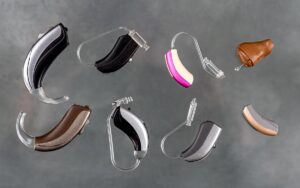The ringing just won’t subside. It’s been over two days and you can still hear that irritating buzzing in your ears. You realize the sound is tinnitus, but you’re beginning to question just how long lasting tinnitus normally is.
Tinnitus can be caused by injury to the stereocilia inside of your ears (they’re the very small hairs that pick up air vibrations that your brain then transforms into intelligible sound). Normally, too much overly loud sound is the cause. That’s why you observe tinnitus most commonly after, for example, going to a concert, spending time in a loud restaurant, or being seated next to a deafening jet engine while you’re taking a trip.
How Long Does Tinnitus Persist on Average?
There’s no cure for tinnitus. But that doesn’t mean it’ll never subside. There will be a wide variety of factors that will establish how long your tinnitus will stick around, such as the root cause of your tinnitus and your general hearing health.
But if you just arrived home from a noisy day of traveling and you notice your ears buzzing, you can normally expect your tinnitus to disappear in a day or two. 16 to 48 hours typically is how long tinnitus will persist. But it’s also not uncommon for symptoms to stick around, sometimes for as much as two weeks. Further exposure to loud noises could also cause tinnitus to flare up again, essentially resetting the clock.
It’s usually suggested that you see a specialist if your tinnitus persists and particularly if your tinnitus is detracting from your quality of life.
What Leads to Permanent Tinnitus?
Tinnitus is normally impermanent. But that means it can be irreversible. When the cause is not mundane that’s particularly true either with respect to origin or in terms of severity. Some examples are as follows:
- Repeated exposure: After one rock show, your ears will probably ring for a couple of days but repeated exposure will lead to far worse consequences. Frequent exposure to loud sounds can result in irreversible hearing injury, including tinnitus.
- Hearing Impairment: Typically, hearing loss and tinnitus are joined at the hip. So, no matter what causes your hearing loss, you could also find yourself developing (or noticing) irreversible tinnitus along with it.
- Traumatic Brain Trauma (TBI): The brain is where the majority of sound is processed. When those processors start to misfire, as a result of traumatic brain trauma, tinnitus can be the result.
Temporary tinnitus is a lot more common than permanent tinnitus. But there are still millions of Us citizens every year who are treated for permanent, or chronic, tinnitus symptoms.
How Can You Get Your Tinnitus to go Away?
You will need to find relief as soon as possible regardless of whether your tinnitus is permanent or temporary. There is no cure for tinnitus but you can do a few things to lessen the symptoms (however long they may endure):
- Use earplugs (or earmuffs): If you cannot avoid loud environments, then safeguarding your hearing is the next best step. (And, really, whether you have tinnitus or not, you should wear hearing protection.)
- Try to remain calm: Maybe it sounds a little… abstract, but staying calm can really help keep your tinnitus in check, mostly because increases in blood pressure can trigger tinnitus flare-ups.
- Avoid loud noises. Going to another concert, jumping on another plane, or turning the volume on your television up another notch could extend your symptoms or double down on their severity.
- Find a way to mask the sound: You can sometimes drown out the sound and get a restful nights sleep by using some source of white noise like a fan or humidifier.
To be certain, if you have long-term tinnitus, none of these techniques will get rid of your tinnitus. But reducing and controlling your symptoms can be just as significant.
When Will Your Tinnitus Disappear?
In most circumstances, though, your tinnitus will subside without you needing to do anything about it. Your hearing should return to normal within 16 to 48 hours. However, if your tinnitus persists, you’ll want to find a solution. The sooner you find a treatment that is effective, the sooner you can experience relief. Get your hearing tested if you think you have tinnitus or hearing loss.
[blogcta]





